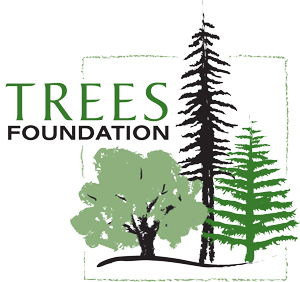Activist Corner
Northern California Tribes and Agencies Plan for Tribal Land Return
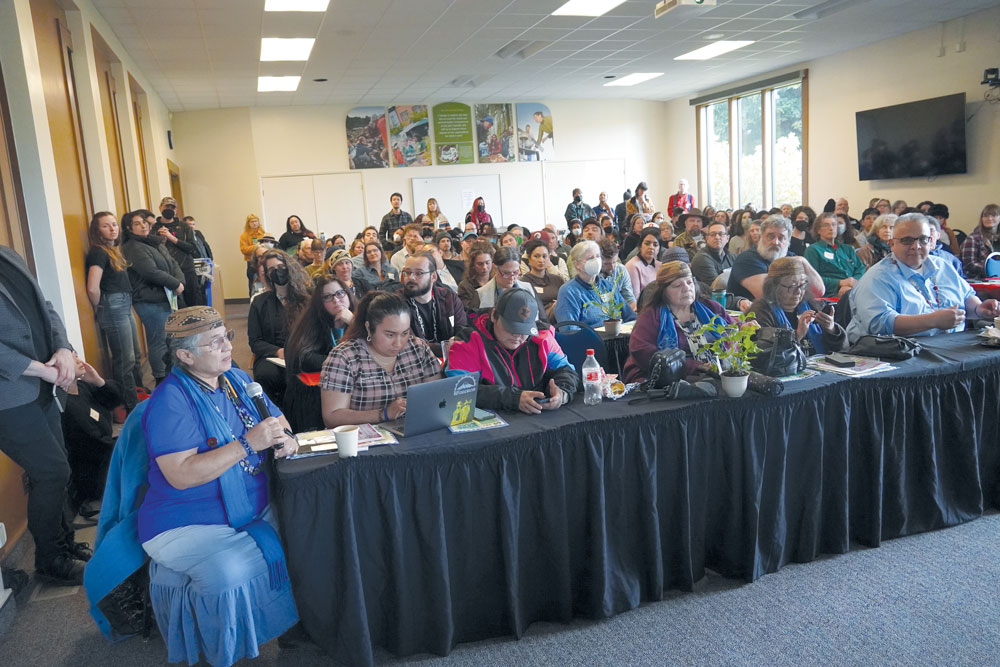
Tribes Ask State to Update Policies and Join Fight for Unrecognized Tribes and Water Protection at LandBack Symposium
Arcata, CA, from March 28, 2023 Press Release—Save California Salmon and Cal Poly Humboldt’s Native American Studies Department hosted the Northern California LandBack Symposium. This first-of-its-kind free event featured Tribal and State leaders, university representatives, foundations, NGOs, land trusts, and lawyers who work to return land to Northern California Tribes and Tribal land trusts.
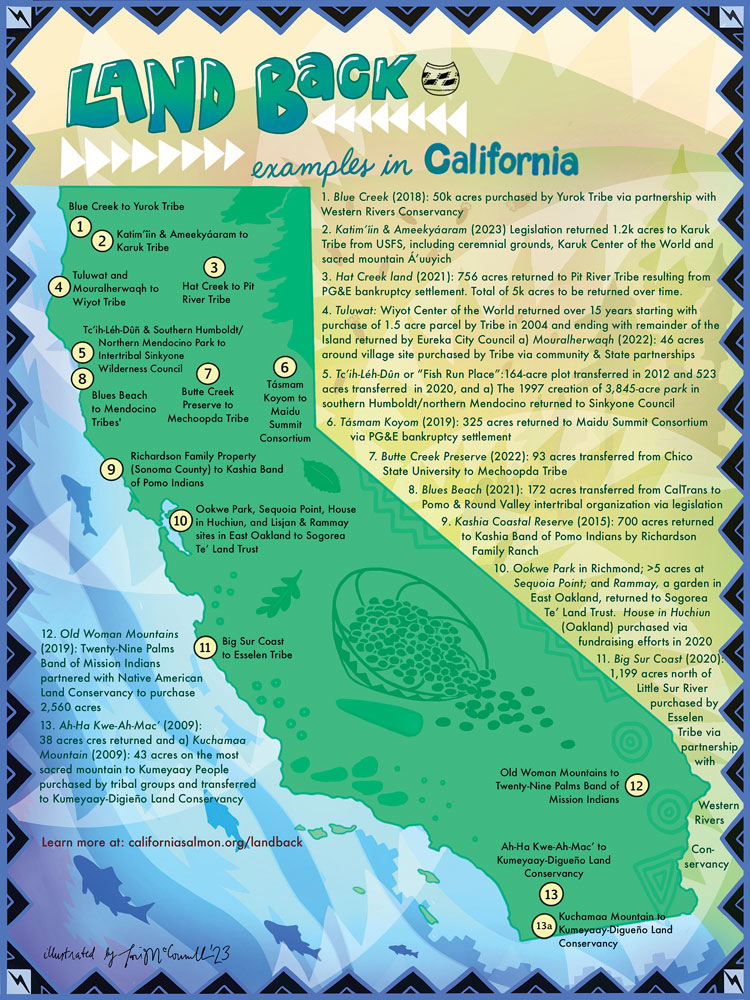
LandBack is a proven strategy for building climate resilience and addressing some of the most pressing environmental issues facing the State of California and beyond. Indigenous stewardship builds community resilience, positively impacting the biodiversity of the landscape and the mental well being of
its inhabitants.
“Our well being has always been interwoven with our natural resources,” explained Jason Reed from the Hoopa Valley Tribe. “Presently our salmon populations are on the brink of extinction and our water is being polluted. The last 170 years of land mismanagement have contributed to high rates of heart disease, poverty, suicide, addiction. Being able to manage these resources again will improve our physical, mental, emotional, and also our cultural well being.”
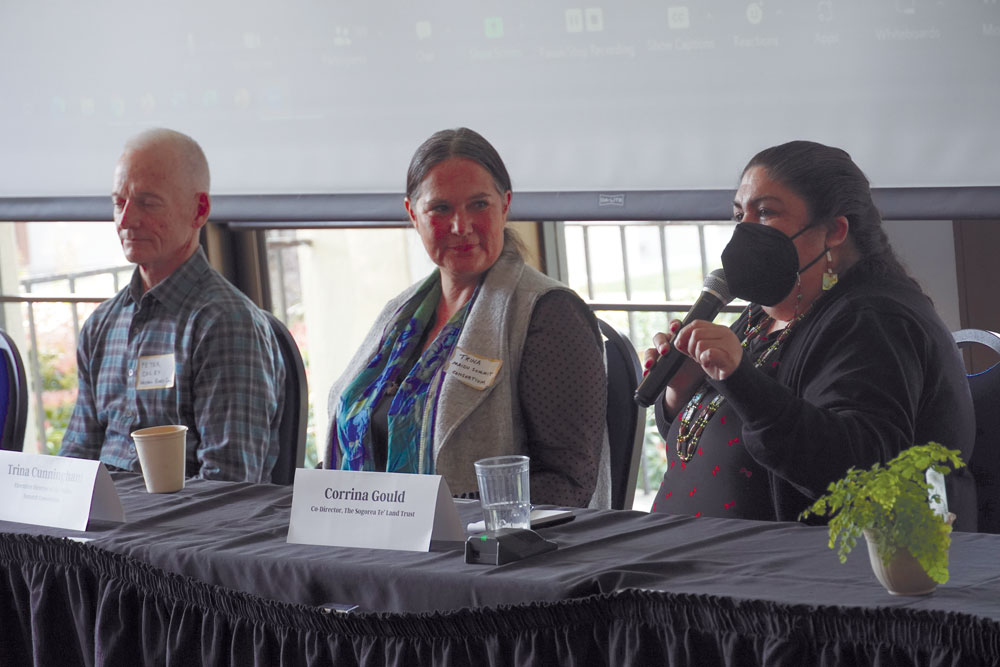
LandBack is also a way to help Tribes heal from attempted genocide, allowing them to return to sacred lands without burdensome restrictions. For instance, over 1000 acres of land was recently returned to the Karuk Tribe from the U.S. Forest Service. These lands are used for the Tribe’s world renewal ceremonies. The return of these ceremonial lands took an act of Congress.
“The Tribal boarding schools and forced assimilation were not that long ago. Our parents and grandparents weren’t allowed to speak our language, practice our culture, but they stayed strong and they stayed resilient. Now there is a movement and it is getting our land back, our ceremonies back, and tying it all together,” explained Karuk Tribe Vice Chairman Kenneth Brink.
In California, implementing land return and protecting Tribal rights can be especially difficult due to the state’s history of refusing to ratify Treaties and of terminating Tribes located in lands that they wanted for building infrastructure, such as dams. Due to this, many Tribes do not have access to sacred sites or have any land holdings. This has meant that many Tribes have had to create land trusts or work with power companies and agencies to hold, use, or manage lands.
“The work and advocacy that we do, it is for the healing and health of our communities and that is only going to happen when we are able to be on our own land freely, when we are able to practice ceremonies without burdens and limitations from people like the Forest Service. We need to be able to have full access and first rights to our sacred lands,” stated Save California Salmon Board Tribal Water Organizer Morning Star Gali.
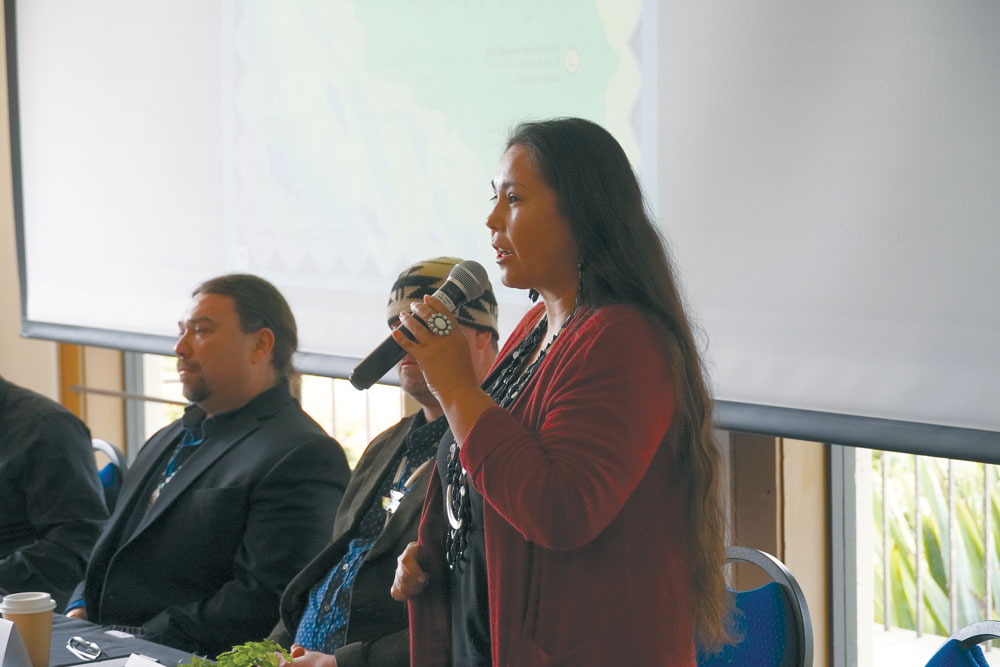
Wade Crowfoot, California’s Resource Agency Secretary has committed to supporting Tribal land return. He brought up several steps the state has taken to support Tribes and Tribal land return since Governor Gavin Newsom’s apology for California’s genocide during his statements. The steps highlighted were focused around land return and restoration funding through the state’s 30×30 plan, along with recently completed first right of refusal policies for Tribes in land sales and disposal through California energy agencies.
“While we can be proud of our collective progress, there is so much work ahead of us,” explained Crowfoot. “The Newsom administration has three and a half more years left…we are really focused on continuing to drive down the field and identify real, substantive, durable land return, more resource partnerships and stewardship together, and then figuring out ways to institutionalize this. So our best practices I talked about today become our common practices across the agencies, and we will look to the results and conclusions of this conference to help guide us.”
While the State of California has done work to improve pathways to land return and promote the co-management of state occupied lands, significant barriers still stand between Indigenous peoples
and the stewardship of their ancestral lands, especially for non-federally recognized Tribes.
“In my personal experience when it comes to consultation they do not care if we are federally recognized or non-federally recognized. We have been treated like the ‘Indian Problem’ in the room,” stated Morning Star Gali in her remarks.
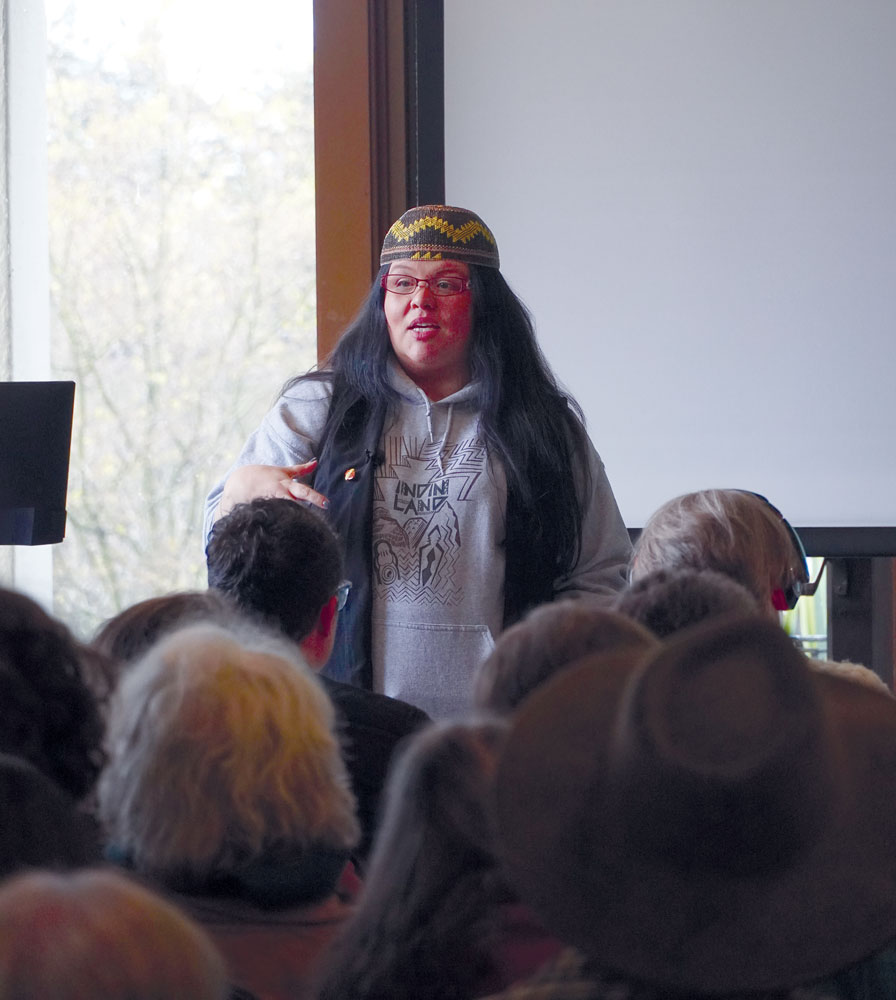
“Along with talking about Land Back we need to talk about Tribes back. We need a plan from California for our non-federally recognized Tribes,” said Winnemem Wintu Chief Caleen Sisk.
Save California Salmon and Cal Poly Humboldt’s Native American Studies Department worked with experts to create a draft California LandBack Red Paper to inform policy makers on the history of landback efforts along with current policy and funding needs to help make Tribal land return easier. Recommendations from the Northern California LandBack Symposium will be incorporated before the official release of the paper this summer. A summary of the recommendation from the conference and Red Paper can be found below.
Some Key Recommendations from the Conference:
- The State creates processes and laws to help unrecognized Tribes who wish to become recognized do so, in order to facilitate land return;
- California’s tax codes and land transfer laws are changed to allow easier transfers of state, counties and university lands to Tribes and Tribal land trusts;
- To allow for tax exemption and lower tax rates for Tribally-held lands that are not yet held in trust – similar to exemptions for nonprofits;
- That state and federal land managers have a first right of refusal policy for lands that are considered excess lands and are to be sold or given away;
- California universities create streamlined policies for land, ancestor, and ceremonial objects to be returned;
- Tribal land return be a goal in California’s 30×30 policy;
- That Land Trusts prioritize Tribal land return, and that land easements for conservation and culture are changed to be less of a burden to Tribes.
Conference videos can be viewed online.
Symposium Opening Program:
https://youtu.be/iCNmwBcs_Q0Panel 1: Public and Private Lands:
https://youtu.be/9RQvhgZonlYPanel 2: Land Grab Universities :
https://youtu.be/PSFWy6e9Qq0Panel 3: Tribal Land Trusts:
https://youtu.be/4DjRulZneK4
For more information: www.californiasalmon.org/landback
